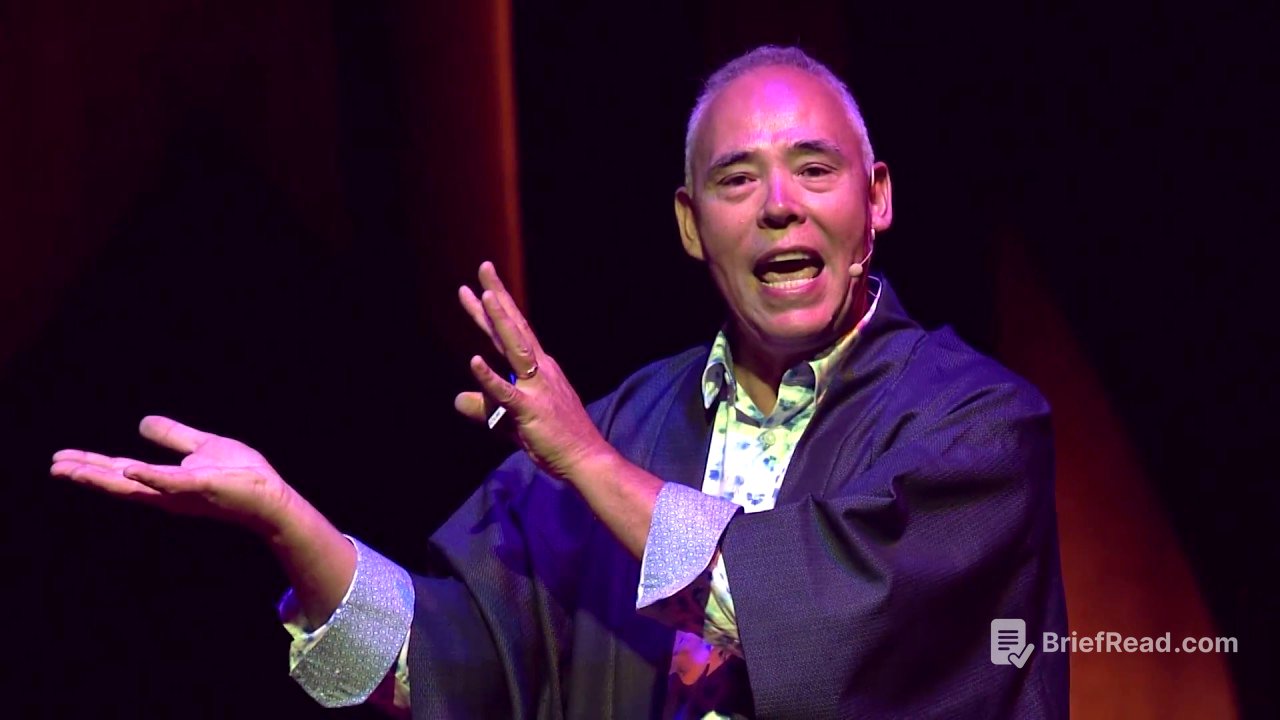TLDR;
The speaker introduces the Japanese concept of "Ikigai," which translates to "life's purpose," and presents it as a treasure map to finding what you love, what you're good at, what the world needs, and what you can be rewarded for. He shares personal anecdotes, including quitting his job to focus on meaningful work and traveling to Okinawa, the birthplace of Ikigai and karate. The speaker explains the four components of Ikigai, suggests starting part-time with either a side hustle or a side helpful, and emphasizes that a meaningful life is not a destination but something to be enjoyed every day.
- Ikigai is a Japanese concept meaning "life's purpose."
- It involves finding what you love, what you're good at, what the world needs, and what you can be rewarded for.
- The speaker suggests starting part-time to discover your Ikigai through side hustles or side helpful activities.
- A meaningful life is not a destination but a journey to be enjoyed daily.
Introduction to Ikigai [0:18]
The speaker introduces the concept of "Ikigai," a Japanese word pronounced "iki-guy," which translates to life's purpose. He describes it as a treasure map that can guide individuals to discover wonderful aspects of themselves that they can share with the world. He warns that finding one's Ikigai takes work.
The Speaker's Journey [1:26]
The speaker shares his personal experience of quitting his radio host job at CBC Radio 2 to focus on his work, which he defines as activities done to achieve a result or purpose. He recounts his travels and projects from the past year, including seeing a full eclipse, traveling the Northwest Passage, helping build houses in the Dominican Republic, filming a documentary, and taking a family trip to Okinawa, Japan. Okinawa is significant because it's where his grandparents were born and the origin of Ikigai.
The Origins of Karate and Ikigai [3:56]
The speaker connects Ikigai to another concept from Okinawa: karate. He explains that "karate" translates to "empty hand," originating from a time when Okinawans were forbidden from having weapons. He recounts the history of karate spreading from Okinawa to the United States after World War II. Similarly, Ikigai, composed of "iki" (life) and "guy" (purpose), represents life's purpose.
The Four Directions of Ikigai [5:36]
The speaker explains that Ikigai has four components: do what you love, do what you're good at, do what the world needs, and do what you can be rewarded for. He shares his personal Ikigai, which is "to delight," and how he applies it in his daily interactions and work. He emphasizes that Ikigai is a full cycle of giving and receiving.
Finding Your Ikigai [8:11]
The speaker suggests starting part-time to find your Ikigai, focusing on the five to nine hours of the day when you're not typically engaged in structured activities. He recommends pursuing a side hustle to do what you love and are good at, potentially leading to a full-time Ikigai. Alternatively, he suggests a side helpful, focusing on activities that broaden your heart and contribute to well-being. He references Laurie Santos' course on the science of well-being, noting that kindness, meditation, time affluence, and spending time with loved ones have a greater impact on happiness than material possessions.
Ikigai as an Action and a Formula [10:25]
The speaker emphasizes that Ikigai is an action, listing verbs like serving, creating, delighting, nourishing, providing, teaching, healing, connecting, and building. He presents a formula for Ikigai: time affluence plus your gifts plus rewards in return. He concludes by stating that a meaningful life is not a destination but something to be enjoyed in the present, and that consistent joy will lead to a lifetime of joy. He encourages the audience to discover what they love and are good at, allowing their Ikigai to come into light.









